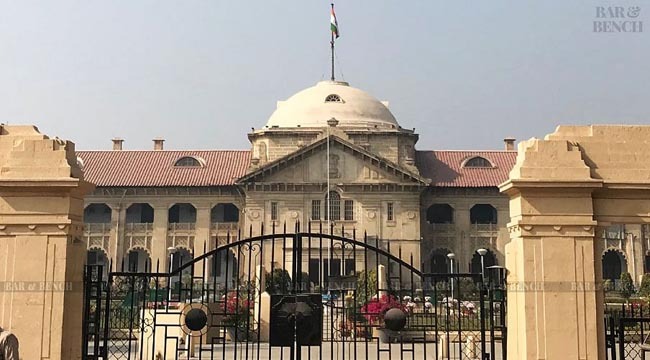Prayagraj, 09 August (HS). The Allahabad High Court has asked the Central Law and Justice Ministry, the state's Justice Department, the appointing authority of the public notary, whether the public notary is capable of notarizing a marriage contract made in violation of Section 5 of the Hindu Marriage Act.
The public notary may check the authenticity of the contents of the documents by affixing a five cm diameter round notarized seal and whether or not the legally enforceable duty arising from the documents notarized by the public notary has a binding effect on the parties.
This order was given by Justice Vinod Diwakar while hearing the petition of a loving couple from Moradabad who had come seeking protection after getting married against the wishes of their family. The court has also asked to tell what would be the proposed action to address and regulate the cases of public notaries involved in notarizing the marriage contract in violation of the Notary Act 1952. The court has also sought suggestions from the department for related and incidental issues arising from such notarized marriage contract.
In the petition, the loving couple has demanded their parents to direct the police to protect their life and property. They say that they got married according to Muslim customs at Jama Masjid in Jaitwara of Moradabad district on 30 February of their own free will. After this, a notarized affidavit of marriage contract was prepared in Prayagraj, which mentioned some rights and liabilities. The court has given this order after expressing doubts about the Nikahnama, marriage contract, PAN card etc. put in the petition being fake. During the hearing, it was said on behalf of one of the parties that on examining the documents, it appears that the documents attached to the petition may also be fake to obtain a protection order from this court. The court has seen in many petitions that marriages are presented as being solemnized through marriage contract. This is especially seen in cases where marriages are claimed to be solemnized according to Hindu customs and traditions, which is a violation of Section 5 of the Hindu Marriage Act 1955.
The court said that it has also been observed that the marriage registrar office usually registers such marriages based on marriage contracts and fake documents which are notarized by public notaries. In many cases, elopement marriages are claimed to have been performed on the basis of notarized contracts. Often birth certificates, Aadhaar cards, PAN cards or mark sheets are found to be forged to falsely claim the age of one of the parties. In such cases, the girls are usually described as illiterate. Whereas police reports often state that the girls have passed 8th or 10th class.
This information is deliberately concealed so that the girls can be shown as above 18 years of age. This can be easily understood from the facts and circumstances of such cases. These are done in violation of the provisions of the Child Marriage Act, 1929 and later the marriages are registered in the Registrar's Office based on fake marriage certificates issued by some trusts or societies.
 look news india
look news india

